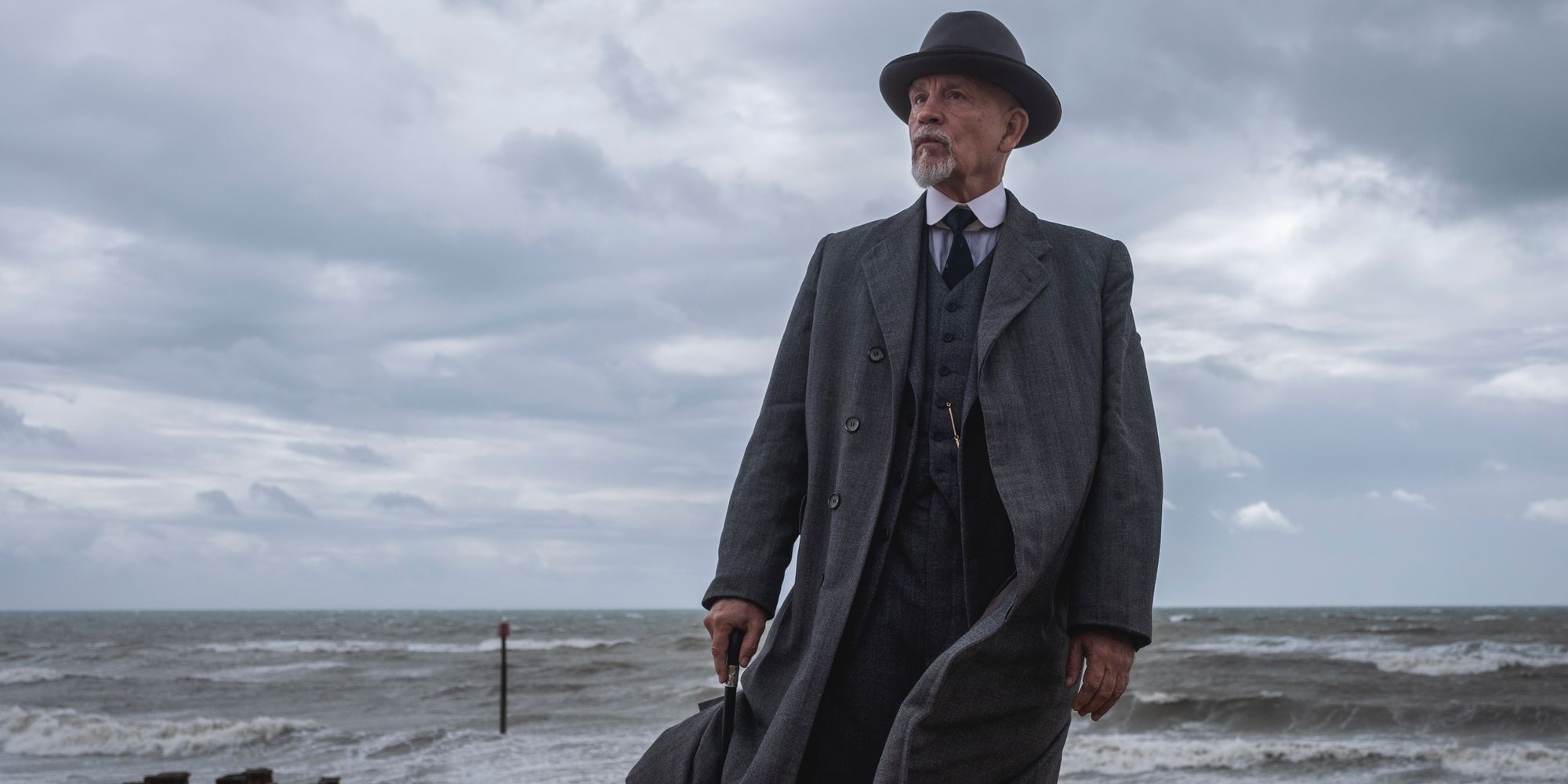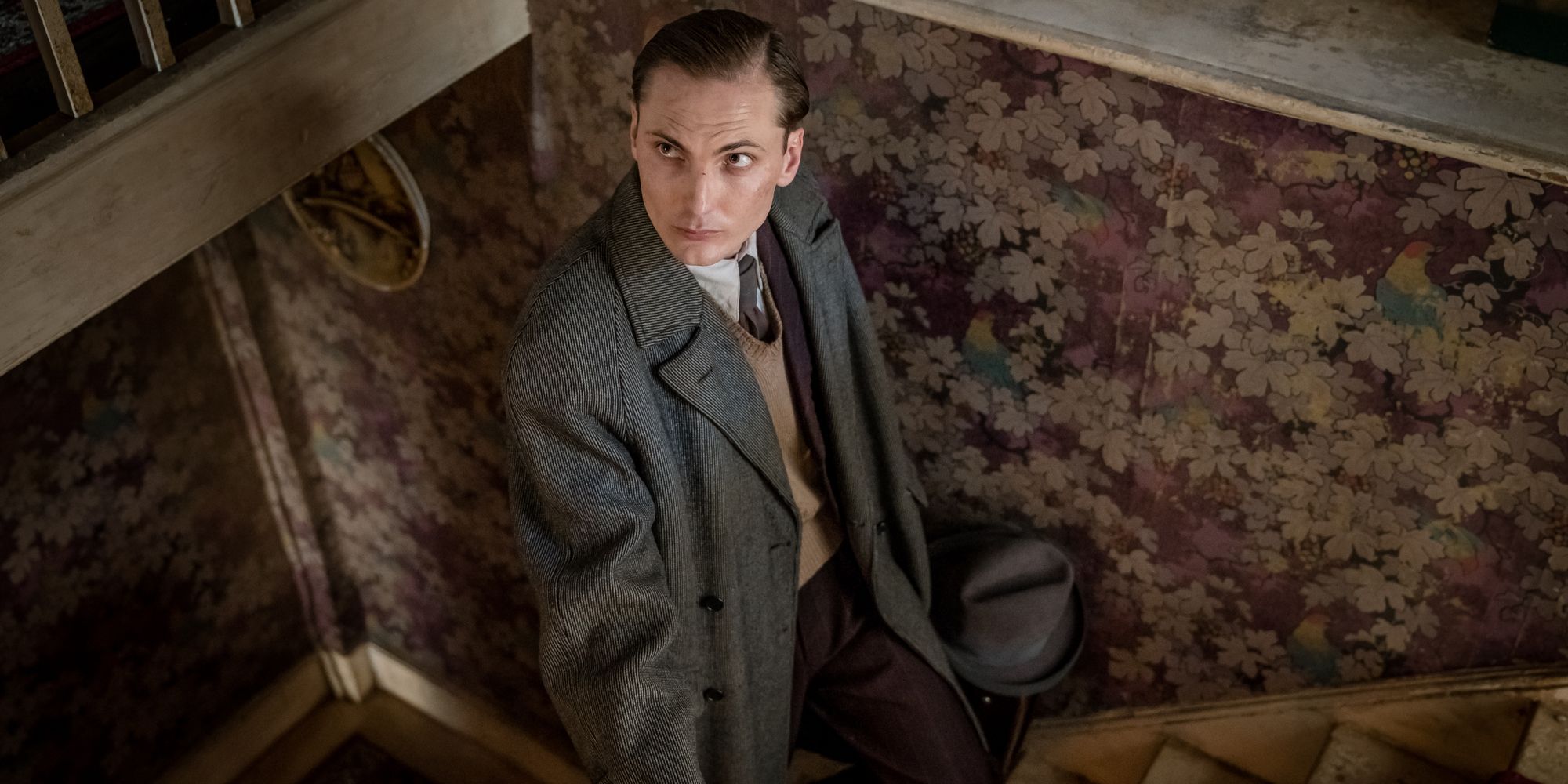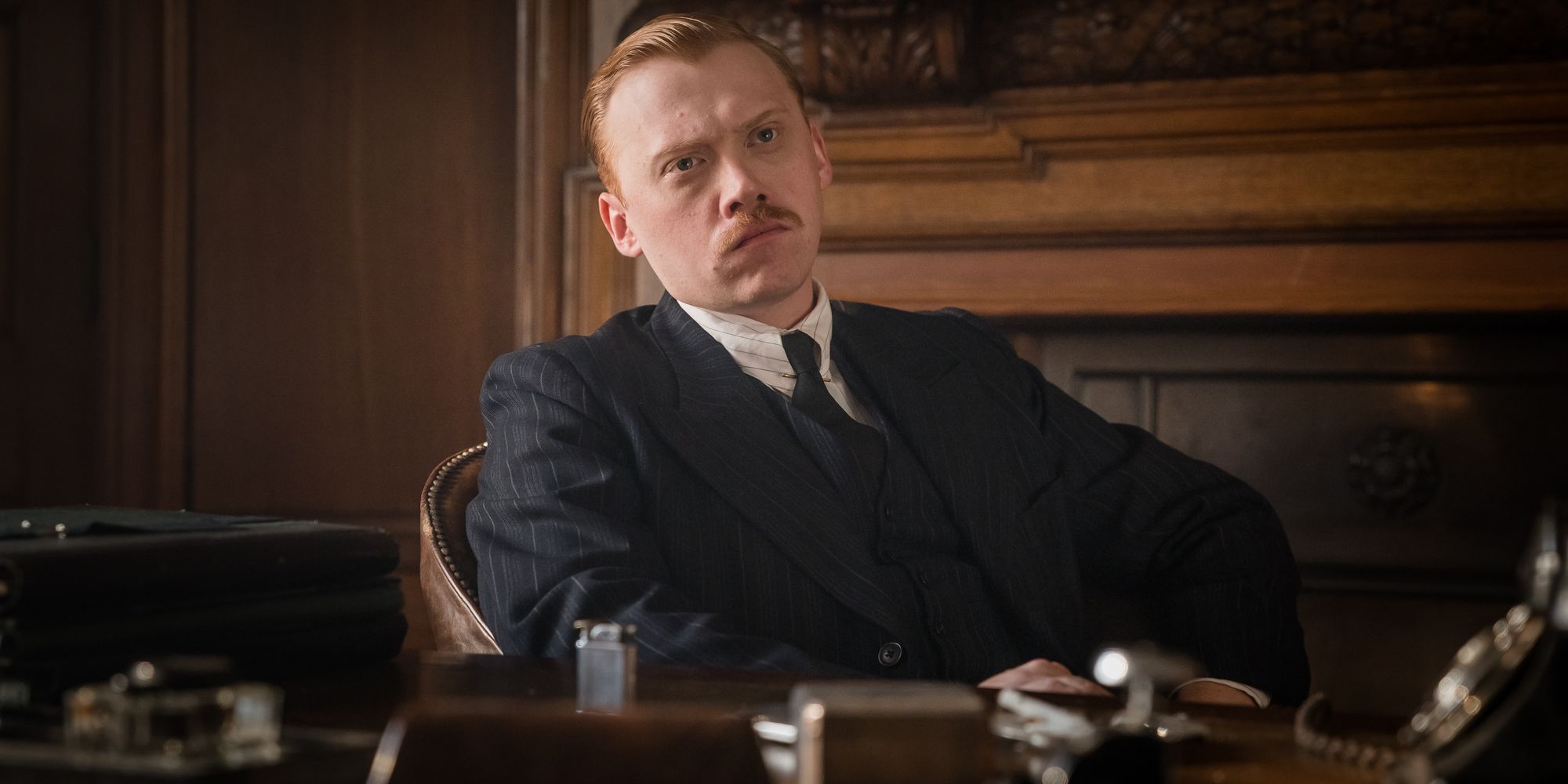There have been a great number of actors who have played the role of Agatha Christie’s famed Belgian detective, Hercule Poirot. They range from Albert Finney to Alfred Molina to Kenneth Branagh and, perhaps most famously, David Suchet, who played the character on the long-running television series Agatha Christie’s Poirot. In Amazon’s adaptation of Christie’s The ABC Murders, however, John Malkovich brings a surprisingly dark and introspective version of the famed sleuth to the three-hour miniseries, one that opens up the character’s past as a way of connecting him to the overt post-Brexit, anti-immigration themes that have been layered into this retelling by series writer Sarah Phelps.
Phelps is no stranger to Christie’s work, as she recently adapted the author’s non-Poirot murder mystery Ordeal By Innocence for BBC and Amazon in 2018. While there were liberties taken with that story as well — mainly to keep the audience guessing with regard to the final reveal of who the murderer actually was — it wasn’t the same sort of change to a popular fictional character seen here. And while the change is sure to rankle long-time fans who were no doubt also vexed by Malkovich’s donning of a goatee rather than the detective’s signature mustache, or the actor’s variation on Hercule’s distinct Belgian accent, the most substantial of these changes (facial hair and regional accent being important but primarily superficial aspects of the character) does at least serve a purpose — heavy-handed though it may be.
More: Strike Back Season 6 Review: New Team Leader, Same Explosive Action
Phelps draws on Poirot’s otherness, his status as an immigrant — or, rather, in this case, a refugee, who fled his own war-torn country in the midst of World War I — to tie the now-retired detective to the series’ undercurrent of rising anti-immigration, a sentiment made manifest in the vaguely Nazi-esque propaganda posters seen plastered on walls and on the pins worn by supporters of the movement. At one point, Poirot asks his neighbor how she could, in good conscience, wear such a symbol in his presence, to which she replies he’s not one of the bad ones the country is trying to keep out. The woman does not offer an explanation as to who she’s specifically referencing and why, which draws further comparison to the rhetoric spouted by those in the pro-Brexit camp, as well as by Trump during and after his presidential campaign.
The parallels The ABC Murders attempts to draw between the spread of fascism in the 1920s and ‘30s and the heated political climate of today are almost so obvious as to detract from the story at hand: that of a string of seemingly random, brutal murders committed along stops of the ABC Railway Guide, with each of the victims having an alliterative name, beginning with the letter of the stop in question. The first victim, a woman named Alice Ascher, is not discovered until Poirot takes matters into his own hands, in response to a string of disturbingly specific letters sent to him from someone with intimate knowledge of his past exploits. Owing to the fact that Poirot is now retired, as is his most vocal supporter at Scotland Yard, the once-famed investigator is now persona non grata with the rookie Inspector Crome (Rupert Grint), who won’t have a Belgian stealing the spotlight from an Englishman.
To fit a wide-ranging murder mystery, as well as the mystery of Poirot’s origins, and the poignancy of his late-career resurgence into a three-hour series, The ABC Murders employs a dual narrative, one that not only follows Hercule on the killer’s trail, but that of the presumed killer himself, Alexander Bonaparte Cust, played by Eamon Farren, an actor who can make use of his particular features and body language to swing wildly from deranged psychopath (as he did in Twin Peaks: The Return) or deeply empathetic figure, as he does (to a certain degree) here. The series relies on the assumption that even though Poirot and Cust share no scenes they are entwined in ways known only to each other. In that sense, Phelps alludes to changes in Poirot’s backstory that begin with an intimation he his not the man he claims to be. In doing so, Phelps’ script uses the xenophobia in the margins of the series to reposition the audience’s perception of such a well-known character as an outsider with something to hide. That in fact proves to the case, but only in a tragic, character re-defining moment which is intended to parallel the revelations about Cust that are admittedly more about the structure of the mystery genre than about the character himself.
Nevertheless, in spite of everything else that’s going on, The ABC Murders offers a fine mystery at its core, one that is made more entertaining by a surprisingly understated performance from Malkovich. The actor’s iteration of Poirot is less boisterous and more restrained than, say, Branagh’s ostentatious rendition in Murder On the Orient Express. The result is a Poirot far removed from his heyday as a famed investigator, one prone to bouts of introspection that, though they are the result of additions to his story, connecting him to the very unsubtle themes being explored throughout, are interesting in their own right.
The series boasts an impressive supporting cast that includes Andrew Buchan (Broadchurch), Tara Fitzgerald (Game of Thrones), Bronwyn James (Harlots), and Shirley Henderson (Harry Potter), though it struggles at times to give most of them anything more to do than move the plot along or double down on the undercurrent of abhorrent nationalism strewn throughout. Though The ABC Murders works better when it’s more of a straight adaptation of Christie’s work, its efforts to use the period setting to address present-day concerns are admirable, even if they are sometimes clumsily slotted into the story.
Next: I Am The Night Review: Chris Pine Energizes An Otherwise Dull Noir
The ABC Murders will stream on Amazon Prime Video Friday, February 1, 2019.



